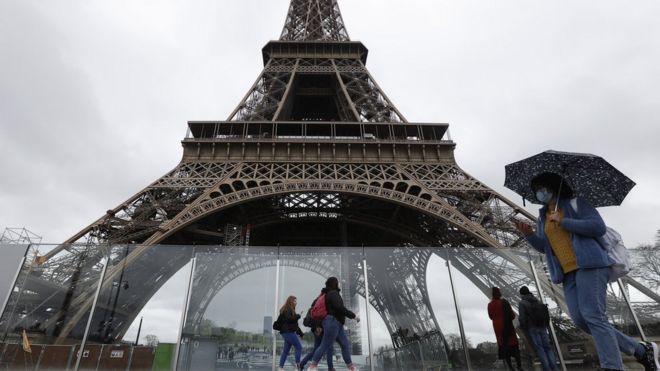 EPA
EPA
France has ordered the closure of all non-essential places used by the public from midnight (23:00 GMT Saturday) amid fears the outbreak is accelerating.
PM Edouard Philippe said the number of people in intensive care was growing and earlier guidelines for the public were being ignored.
Meanwhile Spanish PM Pedro Sanchez declared a 15-day state of emergency.
With 191 deaths and 6,046 infections, Spain is the worst-hit country in Europe after Italy.
Rome declared a nationwide lockdown on Monday. More than 1,440 people have died in Italy.
Meanwhile the US is to extend its European coronavirus travel ban to include the UK and Republic of Ireland. The ban will begin at midnight EST on Monday (04:00 GMT Tuesday), Vice-President Mike Pence announced.
On Friday, the World Health Organization (WHO) said Europe was now the "epicentre" of the pandemic. Its head Dr Tedros Adhanom Ghebreyesus urged countries to use aggressive measures, community mobilisation and social distancing to save lives.
What does the French shutdown entail?
The measure applies to restaurants, cafes, cinemas and nightclubs as well as non-essential businesses.
It would not, Mr Philippe said, affect essential businesses which he listed as food shops, chemists, banks, tobacco shops and petrol stations.
Mr Philippe also asked people to reduce their travel, especially between towns.
"The best way to slow down the epidemic", he said, was "social distancing".
"I say this gravely - we must all together show greater discipline in the application of these measures," Mr Philippe added.
However local elections due on Sunday would also still go ahead. he said. Religious buildings would remain open but gatherings and ceremonies should be postponed.
France reported a sharp rise in cases on Saturday, from 3,661 to 4,499. It recorded 12 more deaths, bringing the toll to 79.
The BBC's Paris correspondent Hugh Schofield says the measures amount to a dramatic ratcheting up of the French response reflecting growing alarm at the fast spread of the virus.
What is happening in Spain?
After a lengthy meeting of the country's government cabinet, Mr Sanchez said a partial lockdown would be in place across the country, with the armed forces on standby to assist with relief efforts.
All shops will also be forced to close, except for those selling food and other basic necessities.
Authorities recorded 1,800 more cases since Friday evening - many in the capital Madrid.
This will be the second state of emergency in the country since the transition to democracy began in 1975, the first being a 2010 air traffic controllers' strike.
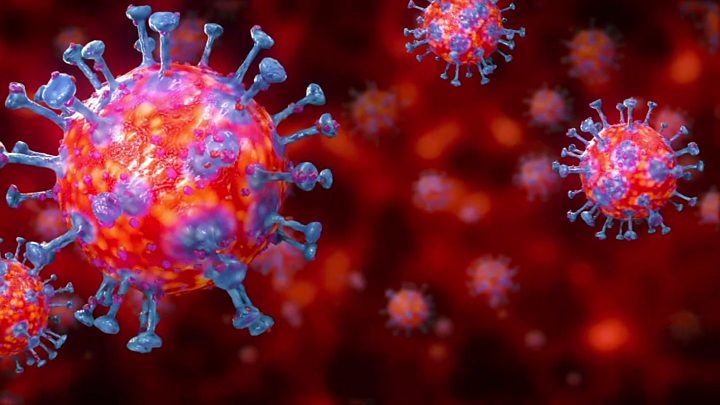
In other developments
- Germany has reported 733 more cases - the national total now stands at 3,795, with eight deaths. Berlin has banned on all public and private events with more than 50 participants and forced the closure of all bars, cinemas, clubs, gyms, betting halls and brothels. Similar bans are expected in the western city of Cologne on Sunday
- New Zealand PM Jacinda Ardern said almost all new arrivals in the country must self-isolate for 14 days
- In China, new cases among people arriving in the country outnumbered those by local transmission for the first time
- Colombia closed its border with Venezuela and barred any visitors who recently visited Europe or Asia


- LIVE UPDATES: Borders shut as coronavirus cases rise
- EASY STEPS: How to keep safe
- A SIMPLE GUIDE: What are the symptoms?
- GETTING READY: How prepared is the UK?
- TRAVEL PLANS: What are your rights?

Are you in France or Spain? Have you been affected by the coronavirus? Share your experiences by emailing haveyoursay@bbc.co.uk.
Please include a contact number if you are willing to speak to a BBC journalist. You can also contact us in the following ways:
- WhatsApp: +44 7756 165803
- Tweet: @BBC_HaveYourSay
- Please read our terms & conditions and privacy policy
Or use the form below
Europe
Europe 'now epicentre of coronavirus pandemic'
- 13 March 2020
- Europe
Italians sing from their windows to defy coronavirus
- 14 March 2020
- Europe
French surgeon goes on trial on child rape charges
- 13 March 2020
- Europe

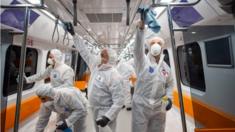
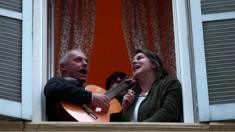
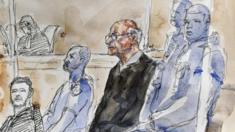
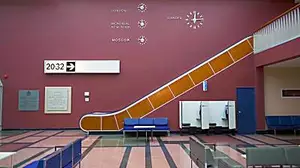
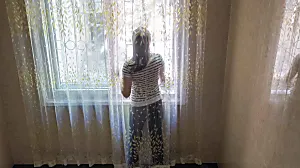

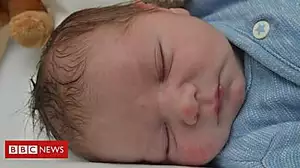
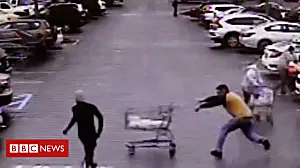
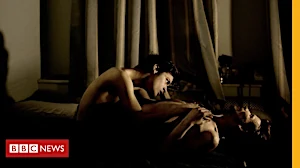
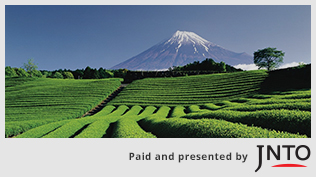
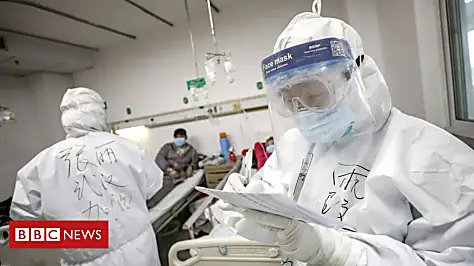
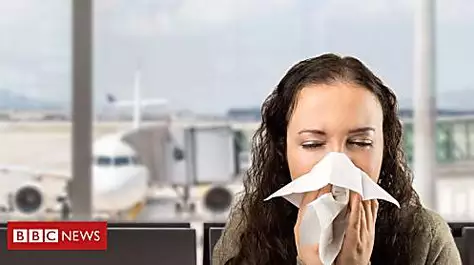
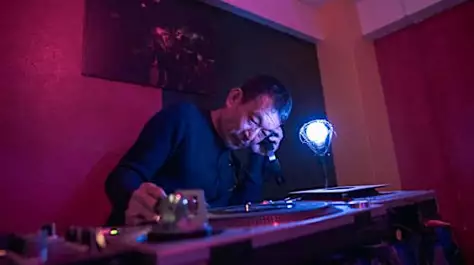
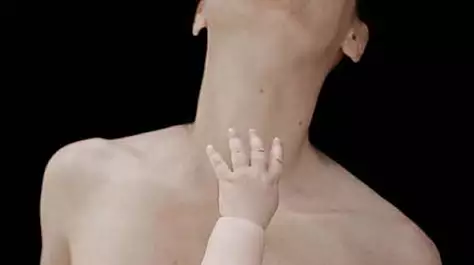


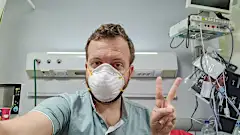
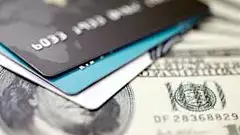
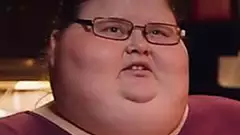

![[Photos] The Real "Doc" Holliday Will Give You Chills [Photos] The Real "Doc" Holliday Will Give You Chills](https://images.outbrainimg.com/transform/v3/eyJpdSI6ImEyZWZkOWQ5OWFjODdlMWQ3MGI2YTYxOGJjNTI5ZTM1MjA5MGQ4OGNhNTJhN2FhMzM3NjlmNTM5M2FlNDI2MmUiLCJ3IjoxNjAsImgiOjkwLCJkIjoxLjUsImNzIjowLCJmIjo0fQ.webp)
No comments:
Post a Comment